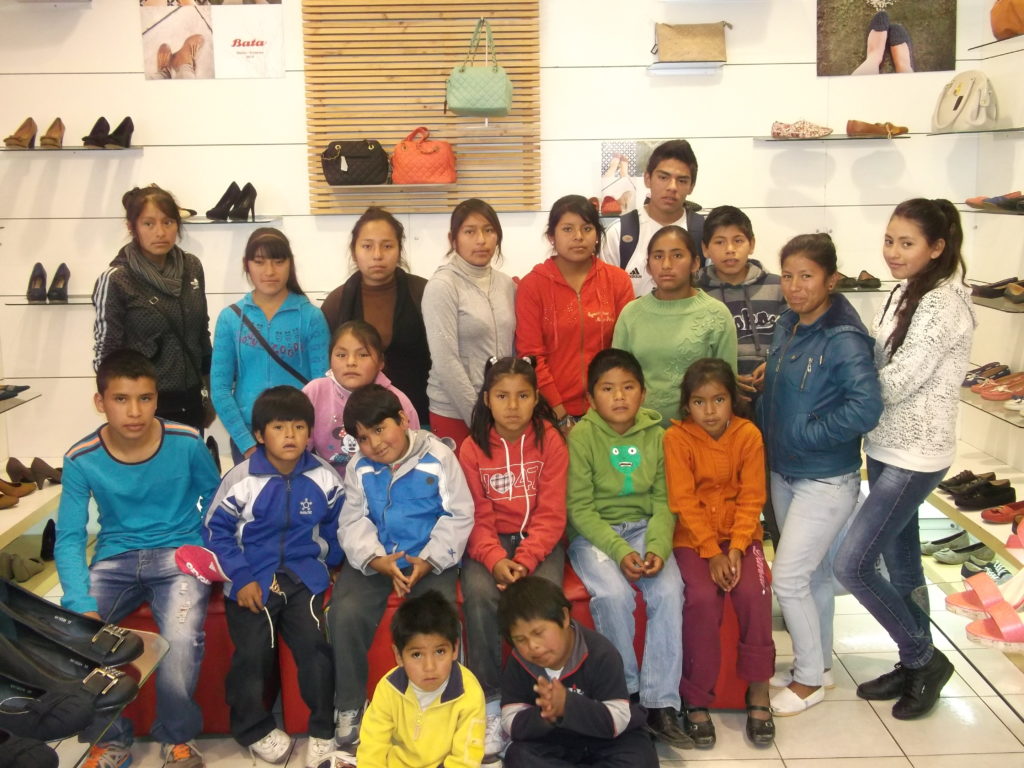The small landlocked nation of Bolivia comprises the rugged Andes Mountains and vast high-altitude plateaus to the west, including a portion of Lake Titicaca – the largest high-altitude lake in the world. To the east are the lush lowland plains of the Amazon Jungle. Despite its wealth of natural beauty and resources, Bolivia bears the scars of centuries of conflict, beginning with the Spanish conquistadors, and followed by almost 200 years of wars and internal military coups. Political and economic instability have brought about considerable poverty there, resulting in widespread malnutrition, crime, and disease.
Yotala, an agricultural suburb of Sucre, is no exception to these hardships. The area is prone to drought, which not only diminishes crop yield, but it also forces families to purchase water for drinking and bathing. Many people in this community are very poor; they rarely manage to grow enough food to feed their families, much less to sell at the market. The Santa Rosa School was founded to assist the children of Yotala’s subsistence farming families. The school teaches core academic subjects, and it has received recognition in Bolivia with high honors for its biology and geography classes.
Children need to attend school to succeed; but more critically, they must attend schools where they are being taught by trained professionals – which is just the case at the Santa Rosa School.
A great institution
Children need to attend school to succeed; but more critically, they must attend schools where they are being taught by trained professionals – which is just the case at the Santa Rosa School. There are sixteen professors at the school – a large number compared to many schools – which means that the children there are attending a great institution where they learn daily and are prepared for moving on to receive a higher education.
Not only is the Santa Rosa School acclaimed for its academics, but it also offers skills training in such areas as weaving, agronomy, dressmaking, carpentry, computer literacy, and hairdressing. The school encourages parental involvement. Since many parents of students there are illiterate or only speak Quechua, the school offers them educational courses, along with general courses on parenting skills and nutrition – all of which afford them the opportunity to obtain better jobs and earn a greater income, which is helpful for their entire families.
***
HOW DO I SPONSOR A CHILD IN BOLIVIA?
You can sponsor a child in Bolivia one of three ways – call our office at 1-800-538-5381 and speak with one of our staff members; e-mail us at sponsorship@children-inc.org; or go online to our donation portal, create an account, and search for a child in Bolivia that is available for sponsorship.

